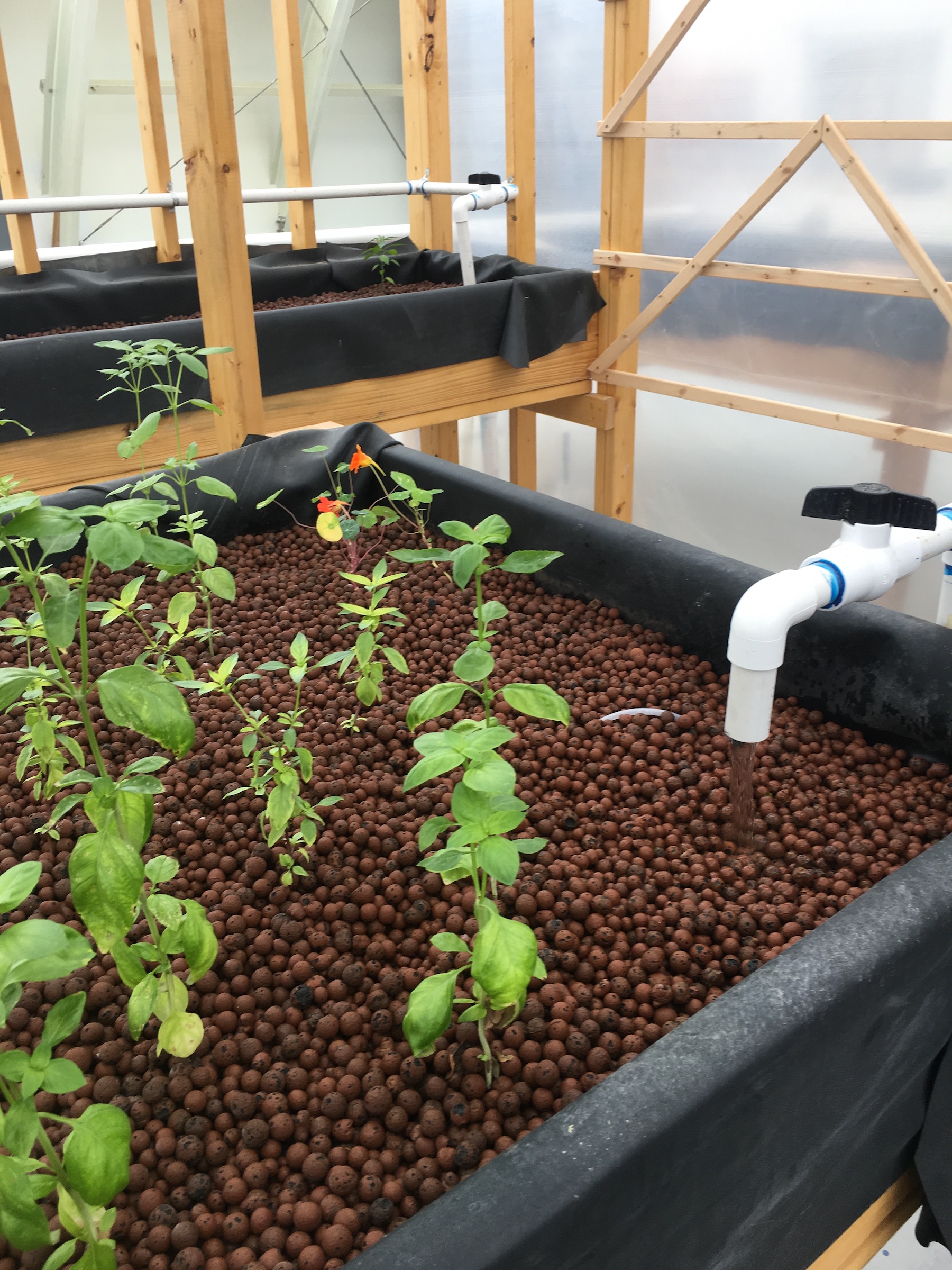Tao Yuan opens aquaponics greenhouse in Brunswick
September 13, 2019
Since opening in 2012, Tao Yuan—Pleasant Street’s Asian fusion restaurant—has been in the business of serving the delightfully unexpected. With dishes like “duck confit fried rice” and “Maine Jonah crab wide noodles,” chef and co-owner Cara Stadler deftly crafts a cuisine that is both delicious and surprising. The restaurant’s latest project, the construction of its very own rooftop aquaponics greenhouse, is no departure from this trend.
The idea for Canopy Farms, an aquaponics greenhouse recently constructed on the rooftop adjacent to Tao, came to Stadler and her mother—co-owner Cecile Stadler—about a year after the restaurant’s official opening. With the help of Kate Holcomb, the founder and director of Canopy Farms and longtime friend of Cara Stadler, the team has worked to bring the project to fruition.
The greenhouse is one step in Stadler’s mission to source locally and more sustainably.
“Maine is an incredible state in terms of its products. The produce here is amazing,” Stadler said.
 Eliana Miller
Eliana MillerThe greenhouse uses aquaponics, a combination of aquaculture and hydroponics. The system involves growing produce in beds placed atop fish tanks. The plant beds and fish, in this case tilapia, work together in a symbiotic relationship; the fish excrete fertilizer for the plants while the plants clean the water for the fish, emulating a natural ecosystem found in lakes and ponds.
Placing the structure in a greenhouse allows year-round growing, which could in turn provide year-round farming jobs and change the landscape of the industry in Maine.
When it opens, Canopy Farms will be one of two commercial aquaponics farms in Maine. The other—Springworks Farm in Lisbon—was founded as a small-scale system by Trevor Kenkel ’18 in 2014 during his first year at Bowdoin.
The agricultural and culinary benefits of this aquaponic farming are clear: “If you have your own farm and your own ways of producing … you can really dictate which products you’ll have,” Holcomb explained.
For the kitchen staff at Tao, this will make bringing pan-Asian flavors to Brunswick much easier. With this new flexibility, Canopy Farms will be able to cultivate specialty Asian items that are often difficult to come by in Maine.
“One thing that we’re starting to try and grow is called rice paddy herb that [has] this really lovely orange flavor that’s pretty distinct. You can try the Asian markets here, but it’s not super fresh, so we’re going to try and grow that,” Holcomb said. “There are [also] other things we talked about, like wasabi [and] lotus root.”
Beyond the agricultural advantages, Canopy Farms and Tao exemplify a new, more holistic system of growing and selling, bringing farming and cooking about as close together as they can be.
“It also allows us to have the freshest possible produce,” Holcomb said. “We already get stuff from local farms, and often that’s harvested that day or the day before, but in this case, we’re harvesting it and just walking it across the parking lot.”
With this newfound proximity, both farmer and chef are able to better and more responsibly meet the restaurant’s needs, harvesting only as much as the restaurant uses in a day—a practice which creates less food waste and spoilage, as well as more flexibility to harvest ingredients only at their peak flavor, nutrient value and appearance.
For now, Canopy Farms is still a work in progress. Having just gotten their tilapia, the team is working to test their process before transitioning to the larger main system.
The hope is that, through this endeavor, Stadler and her team can give back to the community.
“[I want to] take that farm and be able to turn it into this viable system that people can afford, but also is green … and to create a company that is sourcing pretty much all locally, making everything in house and providing jobs to the community—just pumping back into the community what they’re giving us,” she said.
Holcomb explained that, if all goes well, the team hopes to share this model with other restaurants and institutions, keeping community and education at the core of the project. They plan to take on interns in the future as well. With testing underway, Stadler explained that they are optimistic for the future.
As of now, Holcomb and Stadler agree that they are intent on contributing to this developing field, one which Holcomb believes will be important to the economic and agricultural future of the state.
“[We are testing now] so that we can not only be a leader in the growing technology here but also so we can export those technologies to other places,” Holcomb said. “Having Maine be a leader in sustainable year-round agriculture is a really worthy goal and we’re just hoping to be a meaningful part of that.”

Comments
Before submitting a comment, please review our comment policy. Some key points from the policy: